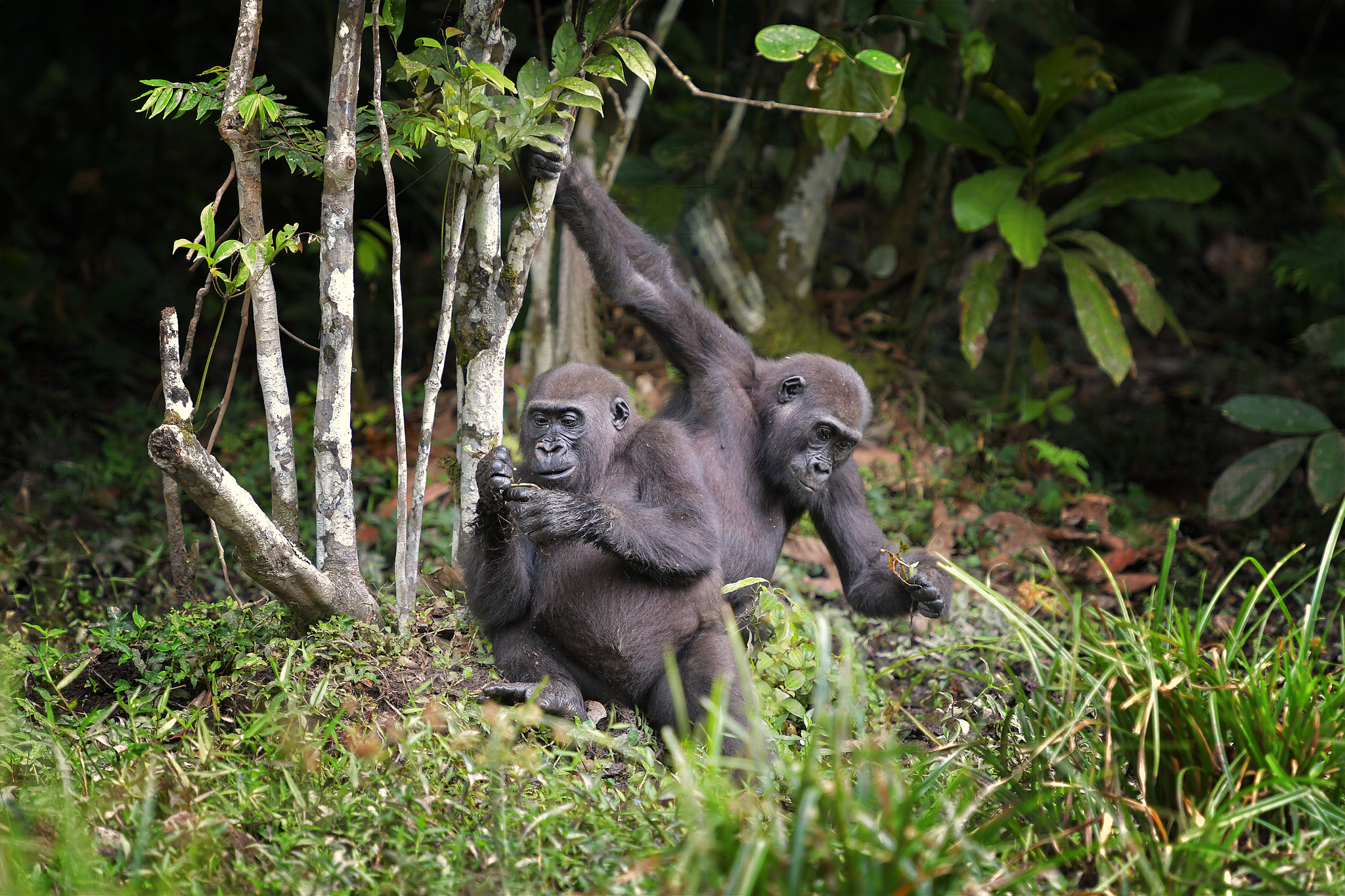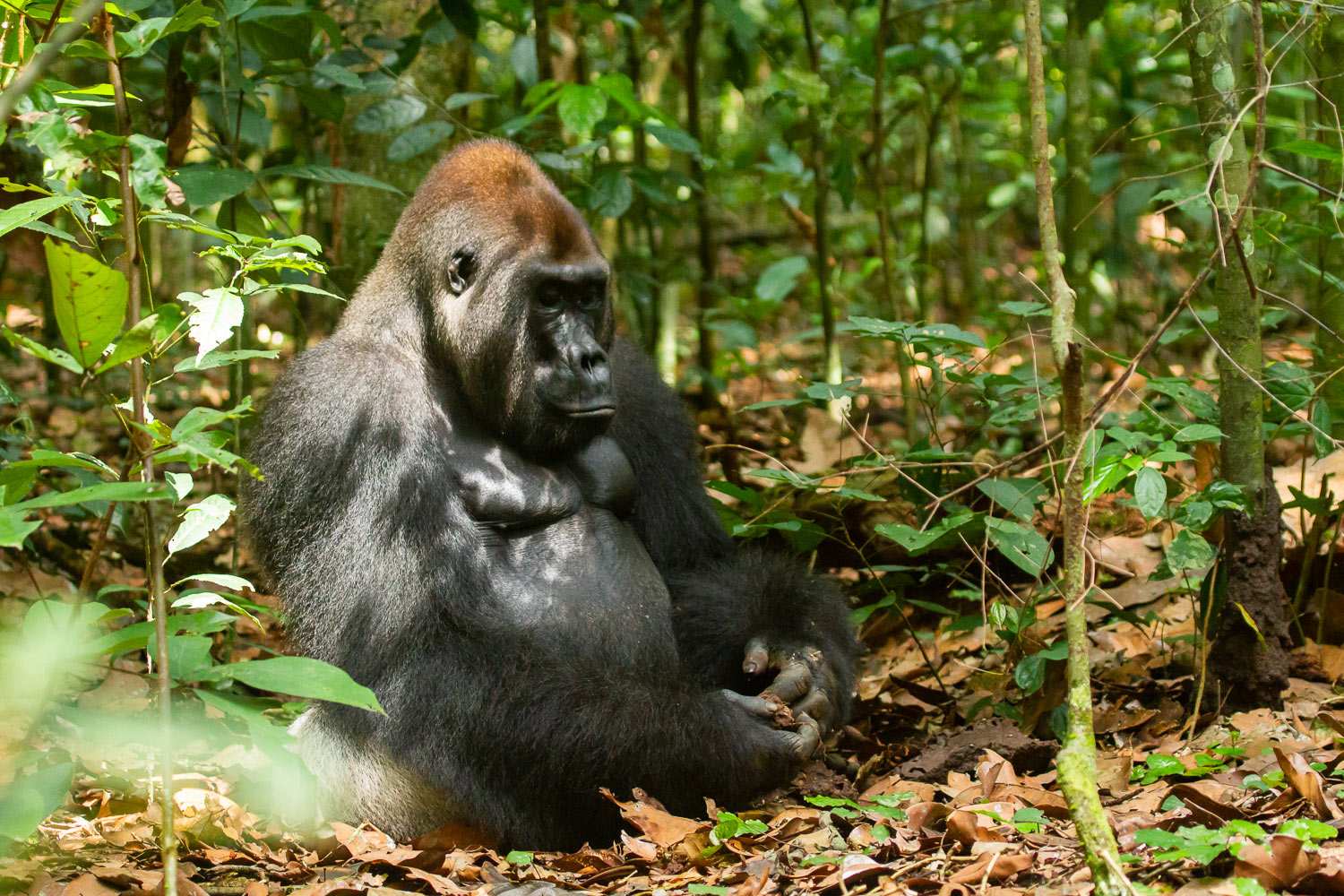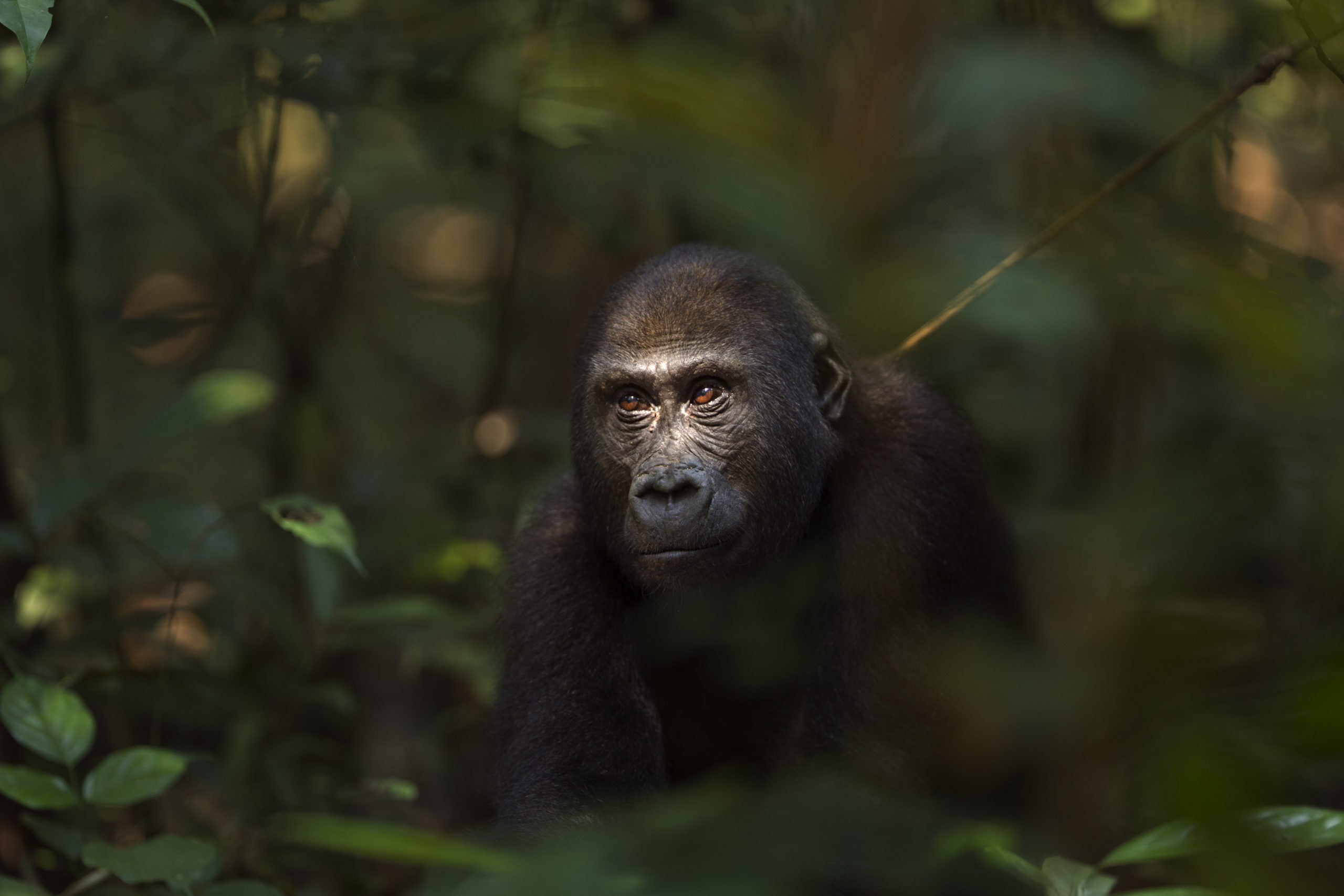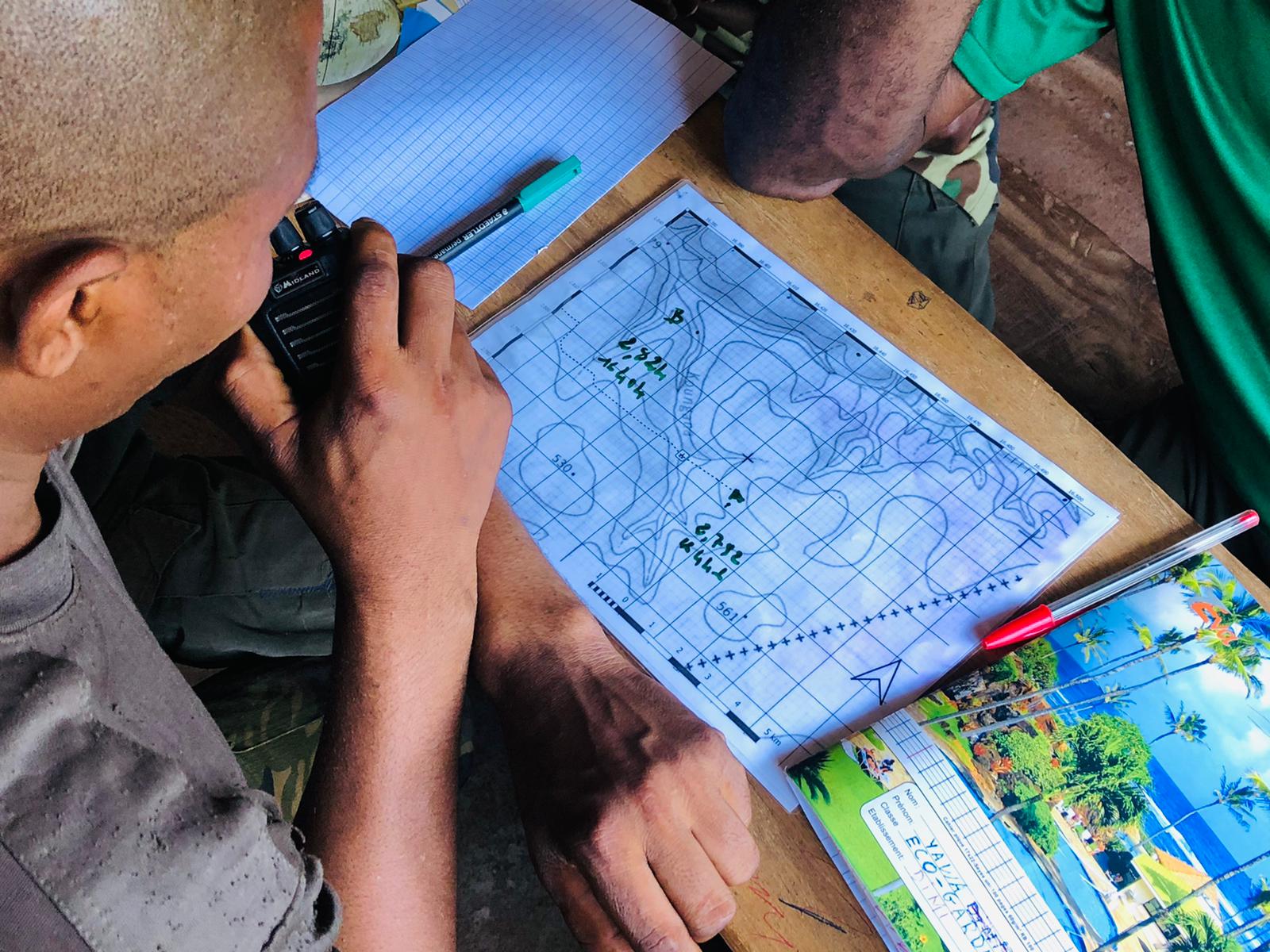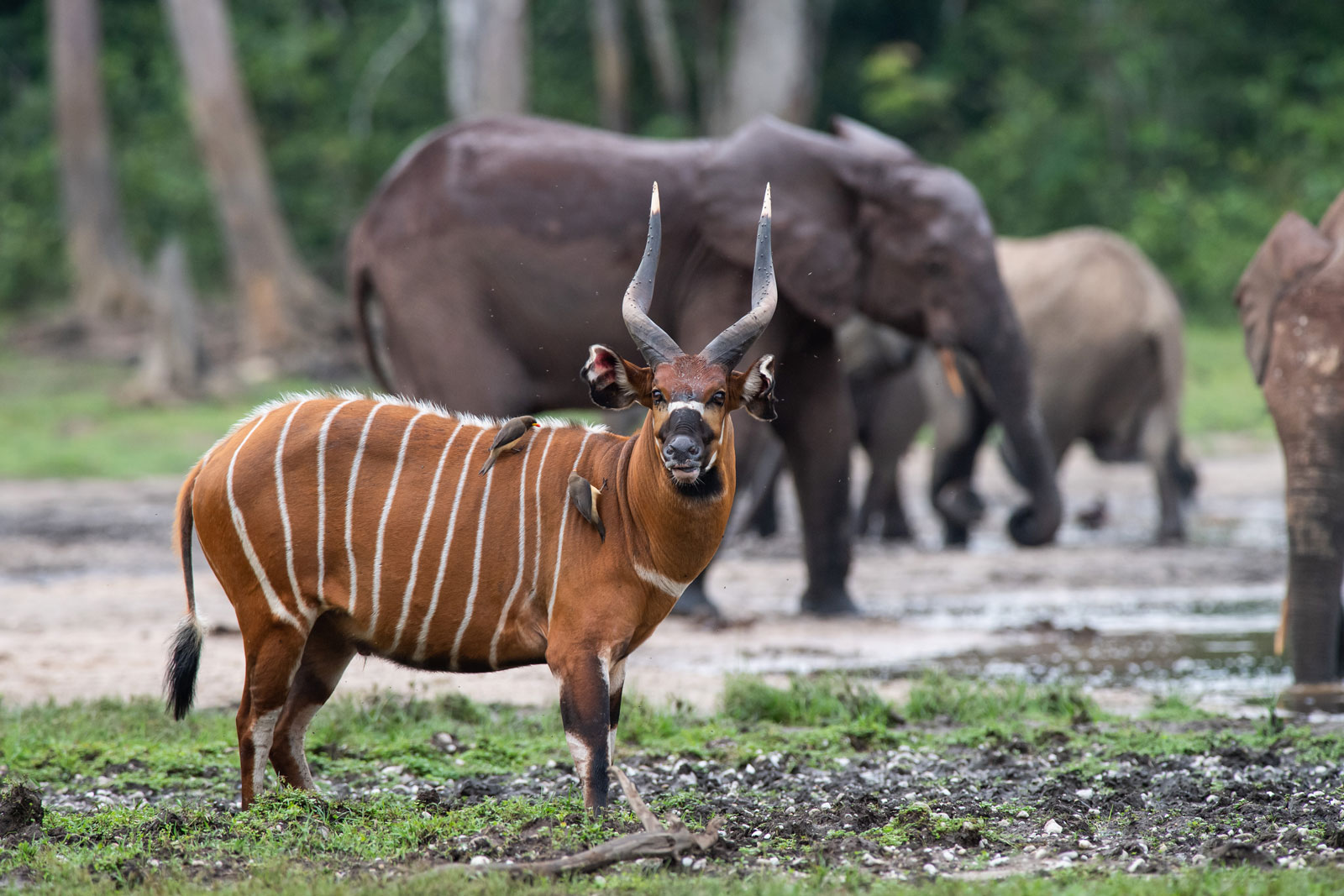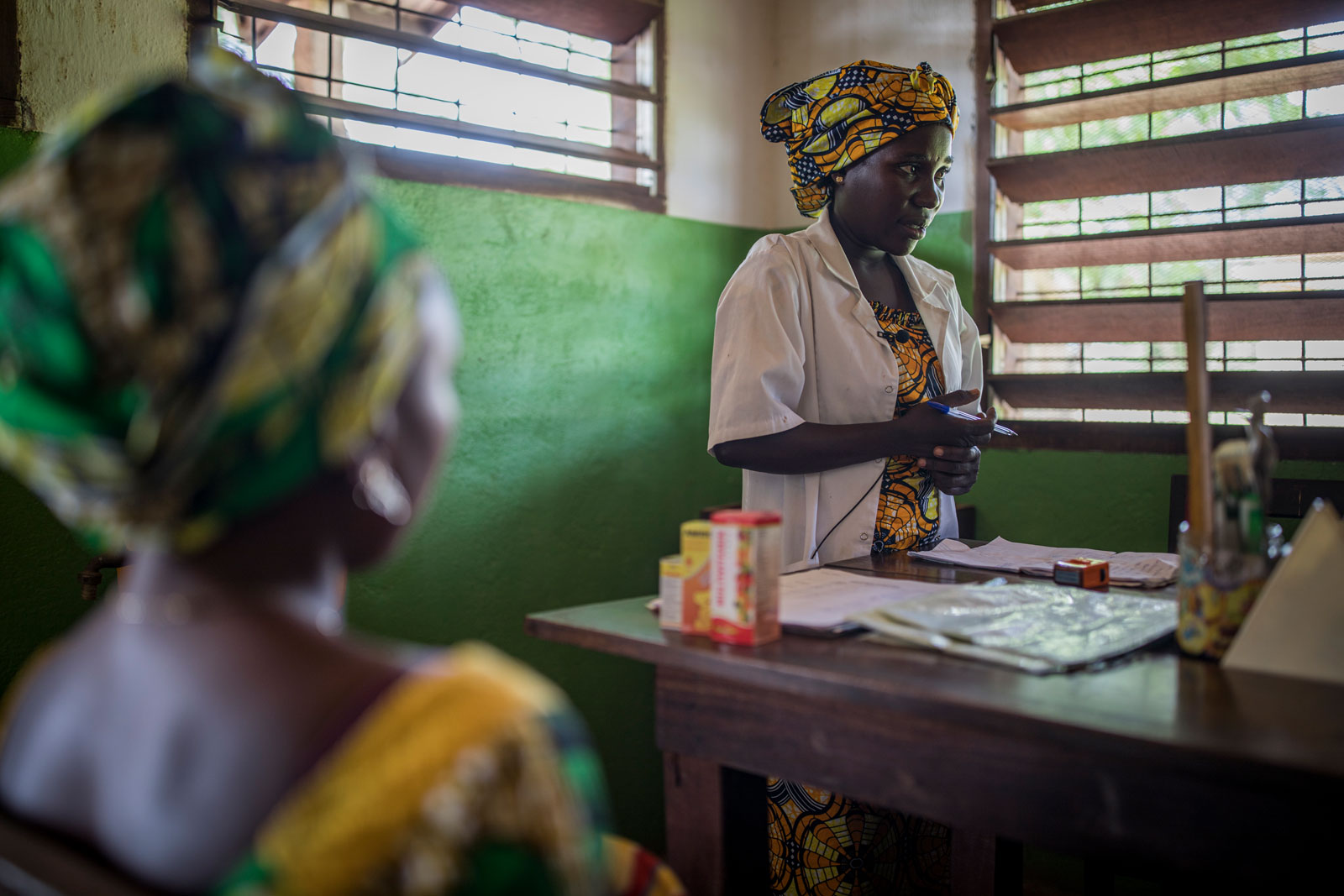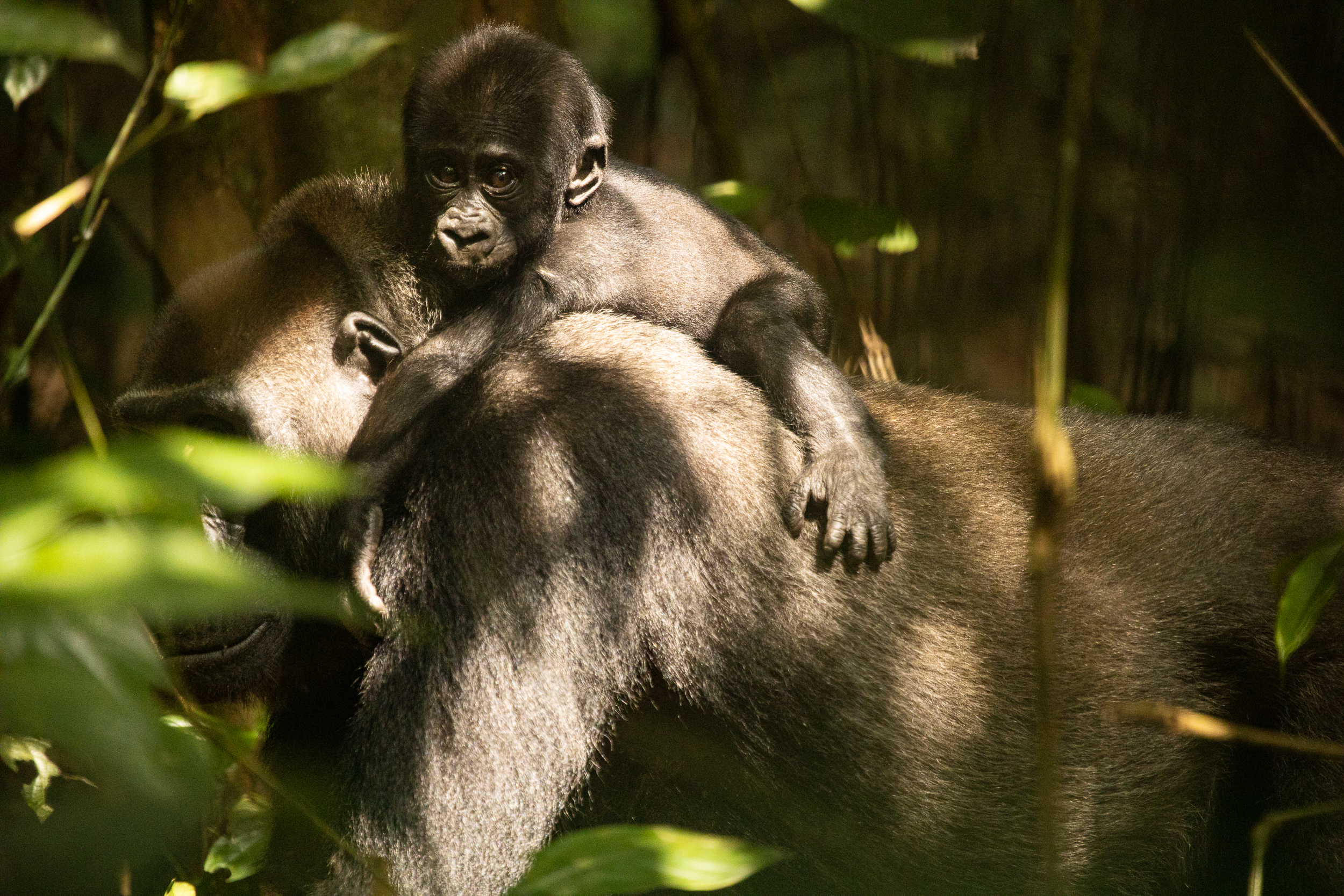
Malui was not alone: she had an infant with her! Still completely without fur, only with a few hairs on its head, it seemed to be just one day old. They knew that Malui was pregnant, but they had not expected it to happen so quickly. The WWF team immediately agreed that the newborn should be called Epolo. It was named after the plant whose leaves Malui had used to build a nest for herself and her newborn.
Four years and nine months earlier, the female gorilla Malui had already caused a small sensation. At that time, she first appeared with one newborn in her arms – at least that’s what the WWF staff thought. Then, a little later, the surprise was perfect: there were two tiny gorilla infants that Malui was suckling at her breast! She had indeed given birth to twins. And now the Makumba family has grown again with Epolo.
Gorillas live groups called troops that are led by a silverback, the dominant male. A troop usually includes several females and four to five infants and juveniles. One of these habituated groups is the troop around silverback Makumba, female Malui, twins Inguka and Inganda and little Epolo.
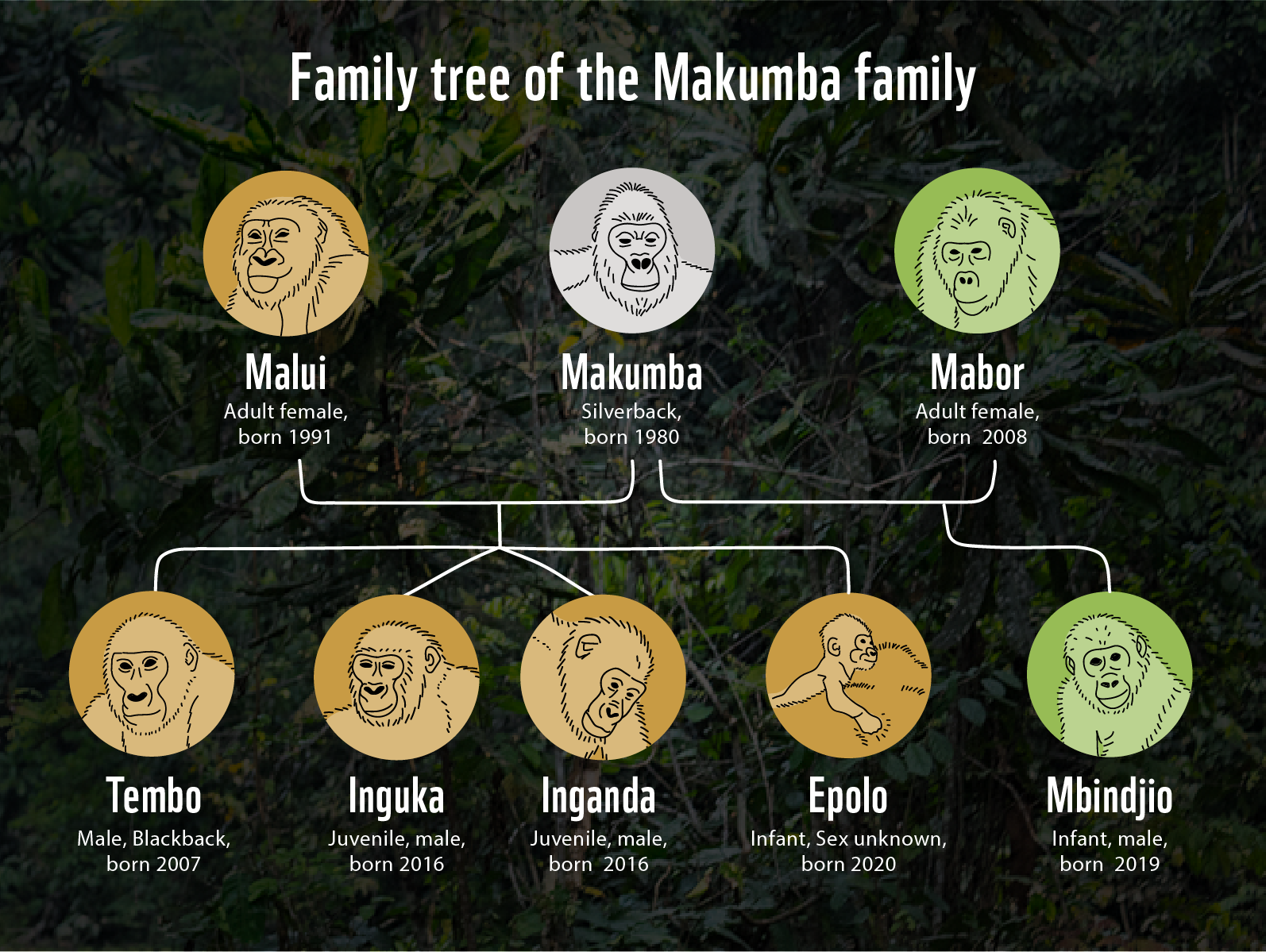
A symbol of hope for the whole region! And Epolo birth is another reason to celebrate. Because the future of the western lowland gorillas in the Central African Republic is anything but secure. Plantations, roads and mines are destroying their habitat.
Although it is forbidden by law to kill gorillas, poaching is still a massive threat to this rare ape species. Out of necessity, many people hunt the animals to eat them themselves or to sell them for a living. Professional poachers bring the gorillas as bushmeat to the markets in the big cities – where ape meat is considered a delicacy. Quite a few gorilla infants are caught alive and end up in commercial zoos or as pets in private households. Diseases are an additional threat to the population of this species.
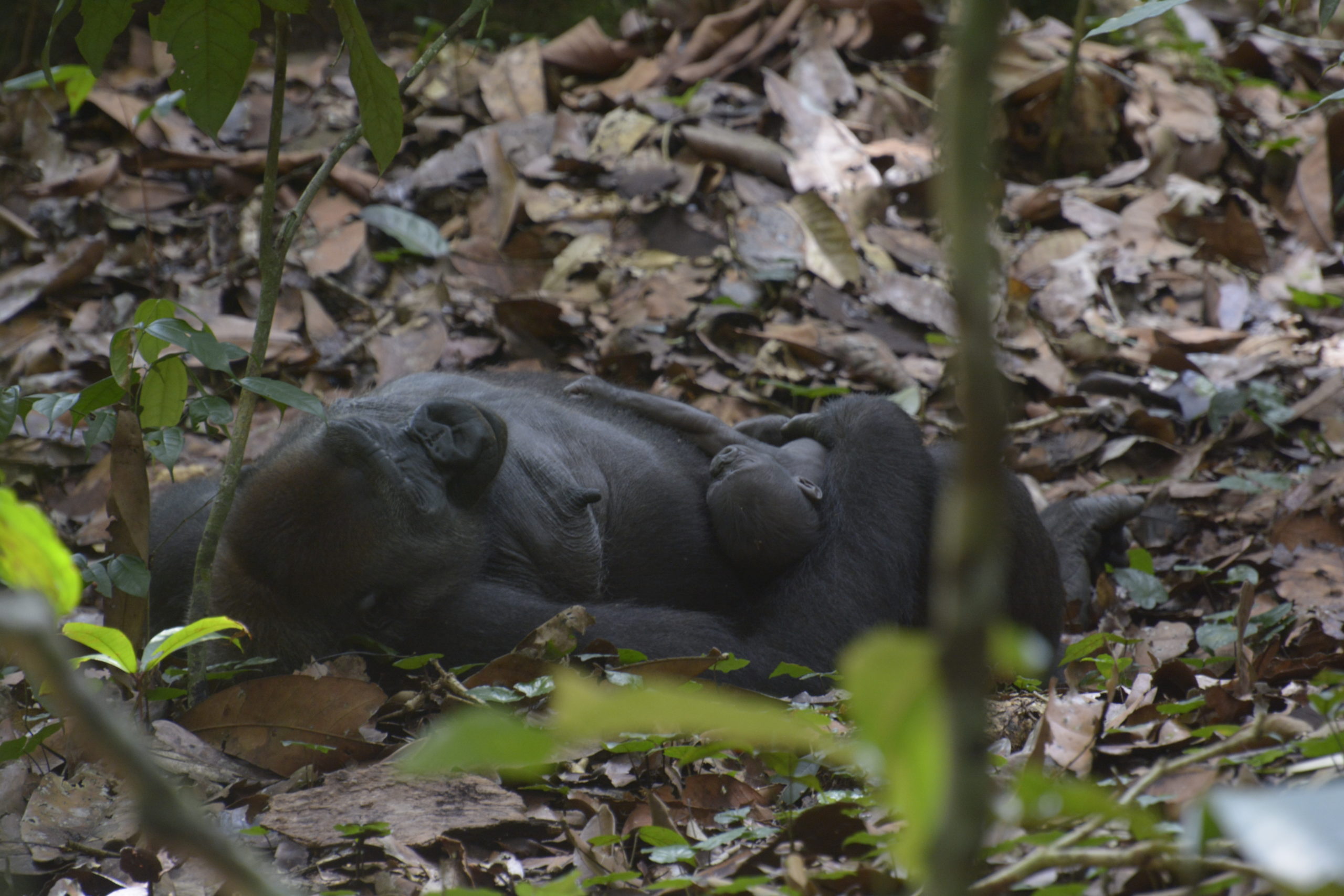
Sustainable tourism
To spare gorillas like Inganda, Inguka and Epolo this fate, WWF is working to protect the rainforest in Dzanga-Sangha – and to promote sustainable tourism. Habituation of the gorillas plays an important role in this. An intact rainforest, where tourists can observe charismatic animals like the gorillas up close, generates income that flows back into the protection of the forest.
Sustainable tourism in turn creates alternative sources of income for the local population, who no longer have to poach for their own subsistance. At the same time, the habituation project allows scientists to learn even more about the behaviour and habitat of the western lowland gorillas so that they can be better protected from the numerous threats.
Until then, the little gorillas have to learn a lot: not only how to climb, search for food and build a nest to sleep in, they also have to find their place in the family and learn to maintain their social rank.
And how have the twins Inganda and Inguka been doing over the last few years?
Just like all little gorillas: playing, scuffling with their older siblings Sopo and Tembo, sleeping a lot, teasing the big ones – always under the watchful eye of gorilla mum Malui. During the first years of Inganda and Inguka’s lives, father Makumba was always attentive, kind-hearted and protective of his offspring. The silverback is over 40 years old, and the two twins were an exceptionally late father’s gift for him.
Gorilla newborns are suckled, fed, cared for and nurtured by their mother until they are about five years old. When the mother roams the forest in search of food, her infant sits on her back or hangs from her belly. Only from the age of about five years does a juvenile look after itself, but it remains in the family for much longer: male gorillas start their own family at about 16 years, female gorillas are fully sexually mature at about eight years and join a young male or emigrate to an existing troop.
Social distancing in the rainforest
We still know very little about the tiny gorilla – because of the Covid-19 pandemic, contact between humans and gorillas has been reduced to a minimum. WWF staff from the BaAka communities, who work as tracker, follow the gorillas’ trails in smaller groups at an increased safety distance, while anti-poaching teams continue to ensure the animals’ protection.
Because gorillas are genetically very similar to humans, they can become infected with the same pathogens- with dramatic consequences for the entire species This was true even before the pandemic and might be especially for Covid-19. Only if the gorillas are doing well will tourists bring money into the region, financing nature conservation and contributing to the livelihood of the local and indigenous population. There is no evidence yet that Covid-19 can also be transmitted to wild great apes. However, the fact that great apes can be infected with Covid-19 and contract the disease was proven in a US zoo at the beginning of 2021.
Therefore, no one wants to take a risk here. So that Inganda and Inguka can continue to roam the jungle in Dzanga-Sangha. And Epolo can soon emulate his siblings.
